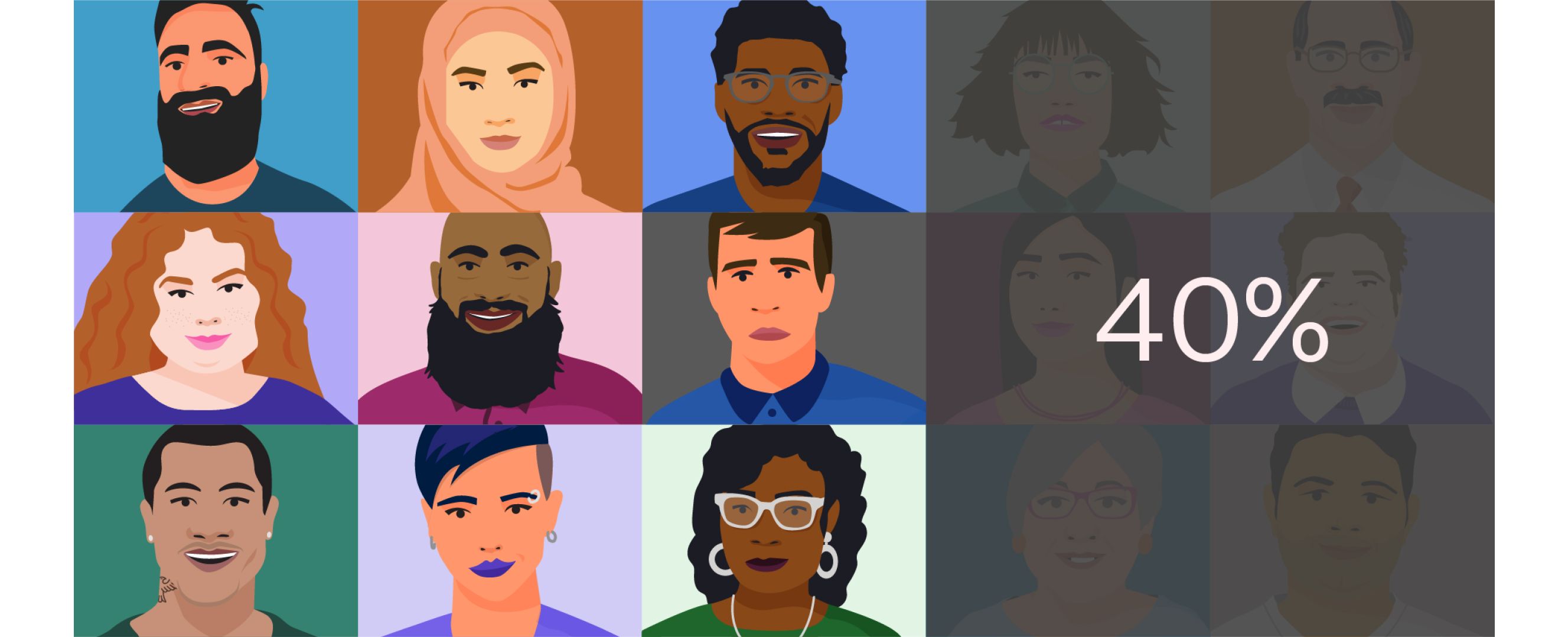
Sustainability
Social Impact
Background
Nearly 40% of People in OECD Households Around the World would Fall into Poverty if They Had No Income for Three Months or More*2

Source: OECD, "How's life? 2020"
At Recruit Group, we recognize how important work is in a person’s life. As a leader in the global two-sided talent marketplace helping match job seekers to hiring employers, we are well positioned to expand employment opportunities for all and reduce the time to get hired. We are committed to making a social impact through our products and services.
To do this, it is crucial for our hiring platform to leverage data and technology to enhance the speed and accuracy of job matching. Furthermore, all too often, traditional hiring practices have the unfortunate potential to reinforce systemic labor market biases and barriers that cannot be solved by speed and matching improvements alone.
In order to solve these social issues through our business, Recruit Group has committed to achieve two social impact goals.
Commitment to Society

Reduce the Time to Get Hired by Half*3
We aim to reduce the time it takes to get hired by half by FY2030 compared to that of FY2021.*3

Helping 30M Job Seekers Facing Barriers*4
Helping 30 million people facing barriers in the labor market around the world get hired ― barriers include education, criminal records, disability, military experiences and others.*4
- On this webpage, the number of years stated are reflective of the number of Recruit Holdings fiscal years, which begin on April 1 each year and end March 31 of the following year. All figures displayed here are approximate.
- The figure is based on data compiled in 28 countries (source: OECD (2020), How's Life? 2020: Measuring Well-Being).
- The period from the time a user starts an active job search on the Indeed job platform to the time the user confirms the receipt of a job offer.
- The initiative as of today includes providing assistance through the Company's online hiring platform, and through partnerships with NPOs and other organizations with whom the Company collaborates. The Company may also aim to reduce other various barriers in the labor market by FY2030.
About Social Impact
Social Impact by Companies
In order to fundamentally solve social problems, it is necessary to have a large impact that overturns the preconceived notions and customs in society. This is only possible when companies, which have an impact on people's lives and the foundations of society, work to solve problems through their respective areas of strength. Recruit Group believes that leading structural reforms in the field of work is the most important social impact we can create and our responsibility to fulfill in order to realize a society in which no one is left behind.
History of Our Social Impact
Since our founding, we have believed in creating "Opportunities for Life" by prioritizing social value, delivering information to those who need it with speed and convenience, and providing opportunities for everyone to discover the best choices for themselves. We strive to create value by empowering and nurturing the potential of each individual and betting on the will and passion of curious minds to correct disadvantages in the world. That is our social impact.
